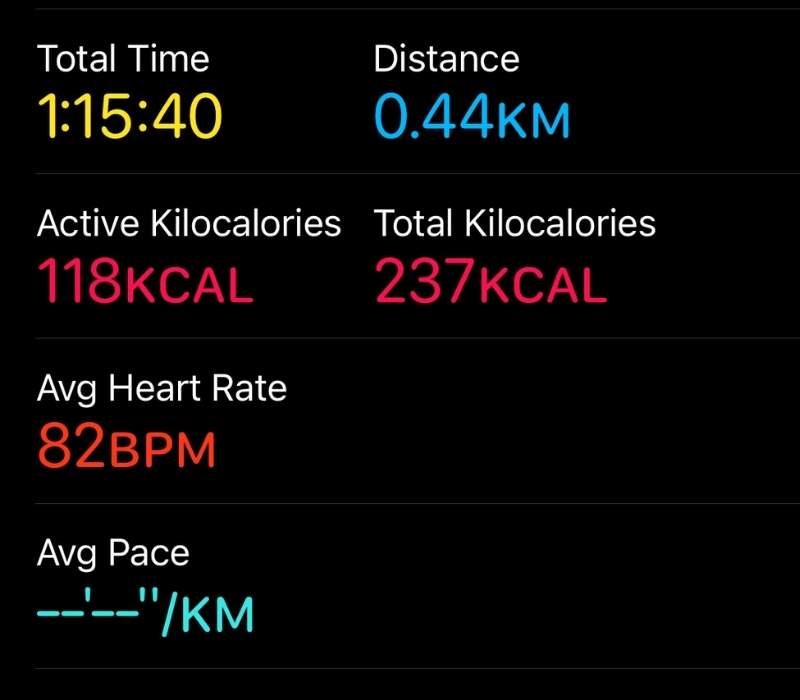
There are many reasons why people want to run a fast 1km. Some people may want to improve their race times, while others may just be looking for a quick and effective workout. 1km is an excellent gauge to estimate other run distances, especially if you’re new to running.
Whatever the reason, running a fast 1km is definitely a challenging task. But with the right training and mindset, it is achievable. The average 1km run time can vary depending on a person’s age, gender, current body weight and fitness level.
Table of Contents
Average 1km Run Time For Females (For All Ages)

On average, it will take a male between 5-8 minutes to run 1km and a female between 6-9 minutes. On average, an intermediate runner can run 1km 2-3 minutes faster than a beginner. A professional runner will run 1km in less than 4 minutes, with the world record being 2 minutes 11 seconds by Noah Ngeny.
Below is a table showing the average speed for males and females to run 1km for 12 different age groups. These numbers are looking at average people who run less than twice a week with a moderate fitness level. Obviously, these numbers will fluctuate depending on how often a person runs and their fitness levels.
| Age | Beginners | Intermediate | Advanced |
| 15-20 | 07:20 | 05:26 | 04:14 |
| 20-25 | 07:25 | 04:35 | 04:00 |
| 25-30 | 07:26 | 04:38 | 04:04 |
| 30-35 | 07:28 | 04:42 | 04:08 |
| 35-40 | 07:37 | 04:52 | 04:14 |
| 40-45 | 07:42 | 04:59 | 04:27 |
| 45-50 | 07:44 | 05:03 | 04:35 |
| 50-55 | 07:45 | 05:13 | 04:41 |
| 55-60 | 08:32 | 05:35 | 04:55 |
| 60-65 | 09:02 | 06:01 | 05:03 |
💡Struggling with stubborn weight that won’t budge? Tired of yo-yo diets and empty promises? Say goodbye to past failures and hello to guaranteed success with our fail-proof, personalised calorie plans! Uncover scientifically-backed strategies that make weight loss effortless, helping you shed up to 24 pounds in just 12 weeks. This isn’t a fad; it’s a lifestyle transformation. Don’t miss out—your journey to a slimmer, more confident you is just one click away!
Average time to run 1km for a male (For All Ages)
| Age | Beginners | Intermediate | Advanced |
| 15-20 | 06:57 | 04:48 | 04:02 |
| 20-25 | 05:55 | 04:12 | 03:19 |
| 25-30 | 05:58 | 03:56 | 03:24 |
| 30-35 | 06:01 | 03:58 | 03:26 |
| 35-40 | 06:05 | 03:59 | 03:31 |
| 40-45 | 06:32 | 04:16 | 03:48 |
| 45-50 | 06:46 | 04:22 | 03:55 |
| 50-55 | 07:05 | 04:55 | 04:04 |
| 55-60 | 07:24 | 05:08 | 04:35 |
| 60-65 | 08:03 | 05:27 | 04:52 |
Check out my big running data analytics that contains every running distance by age and gender in a full comparison table for beginners and intermediates. You can compare your average running times against every distance in your age and ability group.
The average 1km time for a woman is generally slower than that of a man, but this isn’t always true. Naturally, it is because men commonly have more muscle mass and a lower body fat percentage, which gives them a slight advantage in running. Age is also a factor that can affect 1km run times. As we age, our bodies tend to become less efficient at using oxygen, which can lead to slower running speeds.
How often we run also has an impact on how fast we can run 1km. If we only run a few times per week, our bodies will not be as prepared to run at a fast pace as someone who runs on a more regular basis. If you try and run a fast 1km without suitable training, you could injure yourself, so make sure you build up your mileage gradually, maybe a 5km?
Running on a treadmill is typically faster than running outdoors because there is no wind resistance, and you don’t need forward momentum to keep the belt moving. Treadmills can be great for helping you run faster because you can set the speed to run a quicker time. It’s difficult outdoors because you might run faster at the beginner of the run, resulting in tiring out and a slower finish.
Wounder if there is any difference between road running and running on a treadmill? I explain everything in this article.
Other Running Distances You Might Find Interesting To Know

How Many Calories Do You Burn Running 1km
On average, you burn between 70 and 120 calories running 1km non-stop. Nevertheless, this number will be higher or lower depending on your weight, speed, and terrain. If you weigh more, you will burn extra calories because it takes more energy to move your body. If you run on a hilly terrain, you will also burn additional calories because it is more challenging to run uphill.
| Weight | Calories Burned For 1km |
| 160lbs | 63 calories |
| 170lbs | 66 calories |
| 180lbs | 71 calories |
| 190lbs | 74 calories |
| 200lbs | 79 calories |
| 210lbs | 82 calories |
| 220lbs | 86 calories |
| 230lbs | 91 calories |
| 240lbs | 94 calories |
| 250lbs | 99 calories |
Here are some examples of how many calories you can burn running 1km:
- A person who weighs 150 pounds (68 kg) and runs at a pace of 8 minutes per km will burn about 80 calories.
- A person who weighs 200 pounds (91 kg) and runs at a pace of 6 minutes per km will burn approximately 100 calories.
- A person who weighs 250 pounds (113 kg) and runs at a pace of 4 minutes per km will burn roughly 120 calories.
To read the full article, how many calories do you burn running 1km.
How To Run a Faster 1km
To improve your 1km run time, it is crucial to focus on both speed and endurance training. Speed training helps to enhance your running economy, which is the amount of energy you use to run at a given pace. Endurance training helps to increase the amount of time you can sustain a high level.
If you want to improve your 1km run time, you can do a few things.
1. Make sure you are training regularly and consistently. It’s recommended you run at least 3-4 times per week and gradually increase your mileage. This also helps to prevent injury and build muscle. A good distance is 3km.
2. Add some speed work to your training. This could include interval training, tempo runs, or hill repeats. It’s always good to use a treadmill for some of these sessions but don’t neglect outdoor running.
3. Focus on running with good form and ensure that you are running tall and keeping your arms relaxed at your sides. Hold your chest up and back straight is the best way to improve your form and stop lower back pain.
4. Eating a healthy diet and post-recovery is essential for fueling your body and maximising your workouts. It is also necessary to eat before and after your runs to replenish your body. Here’s my favourite post-run recovery shake.
5. Wear the right running shoes. This is vital for both comfort and performance. Make sure you buy shoes from a reputable store and get fitted by a professional if possible. Running shoes prevent injury in the knees and ankles.
6. Take some time to warm up and cool down properly. Warming up helps prepare your body for running, and cooling down helps your muscles recover. A good warm-up should include light jogging, dynamic stretches, and strides. A cool-down should consist of some longer stretching of the calves, quads and hamstrings.
7. Drink water approximately 2 hours before your run to ensure you are adequately hydrated. One litre of extra water on top of your daily 2-3liters, especially if it’s hot outside. You can add hydration tablets to your drinks which adds electrolytes and salts back into your system. Here are my recommended hydration tables.

Should You Run 1km Every Day?
If you are a beginner, you should only run 3-4 times per week and gradually increase your mileage. If you run too often, you risk injury and burnout. Additionally, if you are only running 1km, you are not giving your body enough time to recover between runs. Therefore, it’s not recommended to run 1km every day.
However, if you’re looking to run further than 1km and have a running programme, it will advise running 5-6 times a week. These programmes begin slow and advance to running multiple times a week. It’s essential to listen to your body and rest if you feel sore or have tight muscles. But your body will quickly adapt to regular running after 4 weeks.
I personally like to run 3-4 times a week, twice on the treadmill and twice outdoors. I use the Peloton or elliptical to give my legs a rest from running and to use other muscle groups. I use running to maintain my body weight and increase my general fitness, not for competition or long-distance running. Therefore, decide what your goals are and adjust appropriately.
Average Time to Run 1km Summary
At a certain point, most runners want to increase their distance. To do this, they need to add speed and endurance training into their weekly routine. This can be done by gradually increasing mileage, adding interval training or tempo runs, and focusing on running with good form. Additionally, it is important for runners to wear the right shoes, drink plenty of water, and eat a nutritious diet.
By following these tips, you can improve your average 1km run time and reach your goals. Remember to focus on quality over quantity and listen to your body to prevent injury. Happy running!
